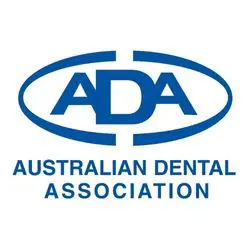
Key messages
- People with dementia can be at greater risk of poor oral health.
- Medications used to treat dementia can cause side effects in the mouth.
- People with severe dementia may need to eat a soft or modified diet. These diets can sometimes increase the risk of developing tooth decay.
- In some areas of Australia, specialist special needs dentists may be available if treatment cannot be continued with a general dentist.
People with dementia can be at greater risk of poor oral health. This includes people with conditions such as Alzheimer's disease, Vascular dementia, Parkinson's disease, and Huntington's disease.
People with dementia should have a plan for caring for the health of their mouth that is specific to their needs.
Visiting the dentist
The dignity of a person with dementia should be respected and if possible, their normal routine should be followed. People with dementia should continue to see their regular dentist as they are familiar with the people and environment. Dental specialists in special needs dentistry are located in some states and territories. They can provide specialised dental care to people with additional needs who can no longer see their general dentist.
When booking a dentist appointment:
- Book an appointment that suits the person with dementias needs and routine. A morning may be best if the person experiences sundowning.
- Ensure that the dental clinic and dentist are aware of the dementia diagnosis.
- Take a thorough medical history and list of medications to the dentist so they are informed about their patient's general health. This information may impact their oral health and dental treatment.
Toothbrushing
People with dementia should continue to brush and floss their own teeth for as long as their ability to manually do so is not affected. If their ability to control a toothbrush is affected, it is important for family members or carers to provide help. There are many techniques that a carer can use to brush a client's teeth, such as:
- Chaining. The carer begins brushing their clients' teeth and the client finishes.
- Bridging. The person with dementia holds a toothbrush while the carer brushes their teeth with a separate brush. This aims to improve the sensory connection.
- Hand over hand. The carer's hand is placed over the person with dementia's hand to guide the brush to clean their teeth together.
- Yawning. Yawn facing the person with dementia and hopefully this will stimulate a yawn in return so that they will open their mouth for their teeth to be brushed.
Consider using a three-sided toothbrush when brushing, such as a Surround Three-Sided Toothbrush or Collis Curve. An electric toothbrush can be considered if it can be tolerated.
Denture care
Dentures must be cleaned every day. If the person with dementia cannot care for their dentures, it is important that a family member or carer helps.
People living in an aged care or residential facility should have their name on their denture. This helps to make it can be identified when other people wearing dentures also live at the same location.
Medications, diet and oral hygiene changes can also affect the oral health of a person with dementia.
Medications used to treat dementia can cause a decrease in the amount of saliva that is made in the mouth. A decrease in saliva can cause a dry mouth. Saliva plays an important role in protecting teeth from tooth decay. A dry mouth increases your risk of developing tooth decay. Low saliva can also make it difficult for dentures to stay in place and make them uncomfortable to wear.
People with severe dementia may need to eat a soft or modified diet. Modified foods in aged care can include a lot of refined carbohydrates, such as sugars and processed grains. This can increase the risk of tooth decay developing especially if the person has poor oral hygiene and a dry mouth.
Choose water over other drink options. Only have drinks such as fruit juice with main meals rather than sipping between meals.
Regular and thorough brushing and cleaning between teeth has been linked to a decreased risk of elderly persons developing aspiration pneumonia. This is where bacteria from inside the mouth is breathed into the lungs causing pneumonia. It can cause severe disease or death but can be prevented with good daily oral hygiene.


